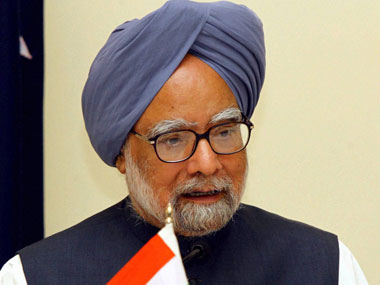The economics has gone out of Manmohanomics, the alleged father of Indian economic reforms in the 1990s.
On Thursday, at the G20 summit in Cannes, Bill Gates and several top European political leaders campaigned for a global financial transaction tax on bond and share trades to raise $48 billion to fight poverty. The US senate has already introduced a bill to levy a 0.03 percent transaction tax on stock, bond and derivative trades from 2013.
But Manmohan Singh is on the wrong side of history - and even economics - in this battle. He opposed the tax saying “it would raise the cost of capital even further.” The Economic Times quoted him as saying that “nothing has happened in Indian financial markets or globally that warrants changing the priorities.”
Is that right? Surely, Mr Singh you’ve heard of the Lehman collapse. Or the Occupy Wall Street movement - which is fighting against the lopsided priorities of bankers as against common people’s needs. And how can Singh say nothing has changed in India when the rupee has been beaten down to Rs 50 and the Reserve Bank can do nothing about it?
[caption id=“attachment_123158” align=“alignleft” width=“380” caption=“Manmohan Singh is on the wrong side of history - and even economics - in this battle.”]  [/caption]
Singh has got his reasoning all wrong on this one.
Impact Shorts
More ShortsFirst, he is wrong because there is a good case for reining in excessive speculation in the financial markets - which is one of the causes of the 2008 financial meltdown.
Second, the cost of capital is high in India not because of the proposed tax on financial transactions, but because of faulty economic policies he has followed. In fact, the cost of capital, as indicated by central bank interest rates, in the US, Europe and Japan is negative - it’s near zero in the US and Japan, and just 1.25 percent in the eurozone, where inflation is running at 3 percent.
Third, Singh is also being completely hypocritical. It was his UPA government that imposed the securities transaction tax (STT) on share and derivatives trading, and the results have been very good. Not only have trading volumes not been hit, but the government is also generating decent revenues through an easily collected tax (the stock exchanges do the job of the taxman). Moreover, there is a commodities transaction tax, and there was even a banking cash transaction tax till two years ago.
Let’s expand on the first point a bit - which is really the crucial one. A major cause of the global financial crisis triggered in 2008 by the Lehman collapse was the excessive creation and trading in risky derivatives. The problem is not just the risk, but the sheer volume of trading for trading’s sake.
The volume of financial transactions in the currency, bonds and shares without any underlying real transaction is probably 10:1 or 5:1 in most markets. The sole reason for trading is to make bets on the future direction of interest rates, economic growth, corporate profits - or anything. In India, for example, just about 20 percent of share trades end in deliveries. The rest of the trading happens for the sake of hourly profits of day-traders and speculators.
We are not trying to knock speculators here - for high trading brings the benefit of high volumes and finer pricing options. But this is a far cry from saying that governments should not put mild speed-breakers in this area to collect revenues and prevent excess speculation.
Due to the humungous volumes in the virtual markets, when this market keels over, it impacts the real economy. Currency speculators can bring down entire economies and currencies - as George Soros did when he bet $10 billion in 1992 against the British pound. He bet that the pound would depreciate and the German mark would gain (for various fiscal reasons) by shorting the former and going long on the latter.
The Bank of England tried its best to defeat Soros and hold the pound up by raising interest rates repeatedly, but in the end the UK government could not fight the speculators and opted out of the European exchange rate peg.
We see the same speculative betting against Greece and the other over-borrowed southern European economies right now. This has pushed up their cost of capital and driven them to excessive austerity inside the eurozone - compounding their woes.
The currency markets are good early indicators that something may be going wrong, but they also help precipitate a crisis by pushing governments into a corner in a matter of days or weeks.
So, Mr PM, there is a good case for a global Tobin Tax - a tax on financial transactions, named after its original proposer, James Tobin, that is intended to prevent excess speculation and raise some money.
As for the other claim of Singh, that a Tobin tax will raise capital costs, we need to check if that is really the case after the tax is imposed. We can always remove it if it does not work. But currently capital costs are high in India because of the fiscal profligacy of the UPA government and reckless spending on social schemes that he has indulged in.
This has forced the Reserve Bank to keep raising interest rates. If Singh wants to know why capital costs are so high, he should look into the mirror for the culprit. He would see himself, and the reflections of Sonia Gandhi and Rahul in it. Between the three, they have stoked inflation and rate increases like never before because the political goal driving it all is to get Rahul elected as PM in 2014.
We have called it Rahul-flation before. You could also it Sonianomics - a social security spending binge that is nothing but voodoo economics. But the Manmohannomics of the 1990s is dead.


)

)
)
)
)
)
)
)
)



